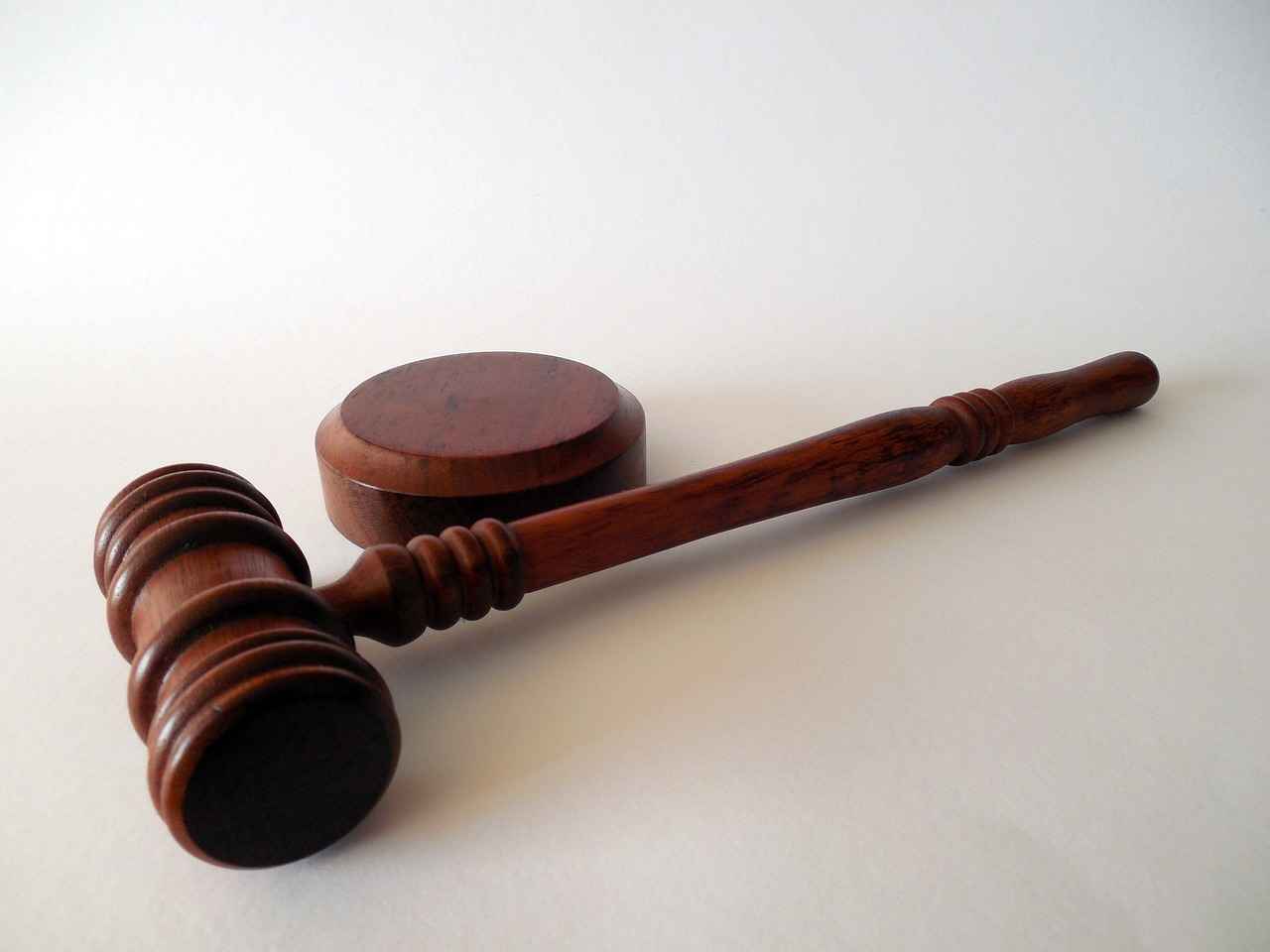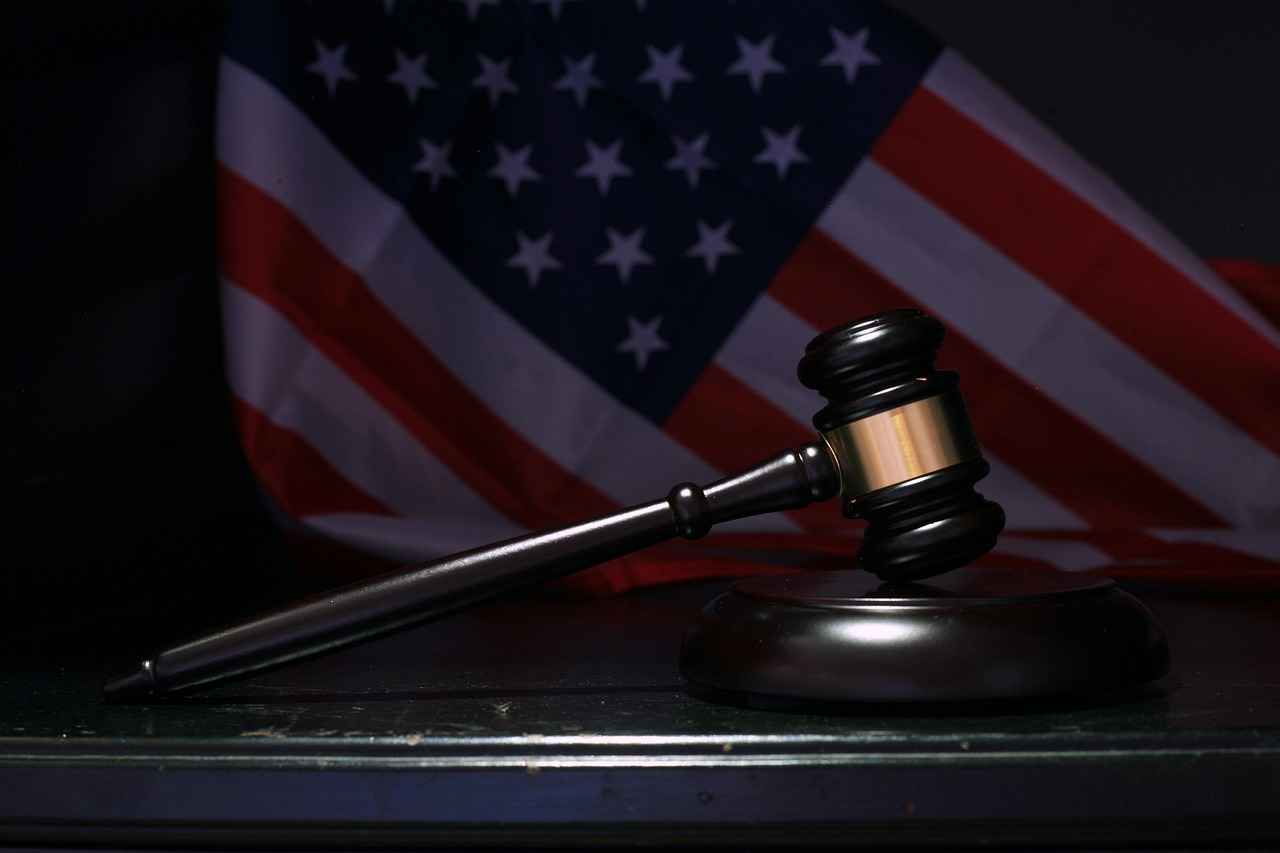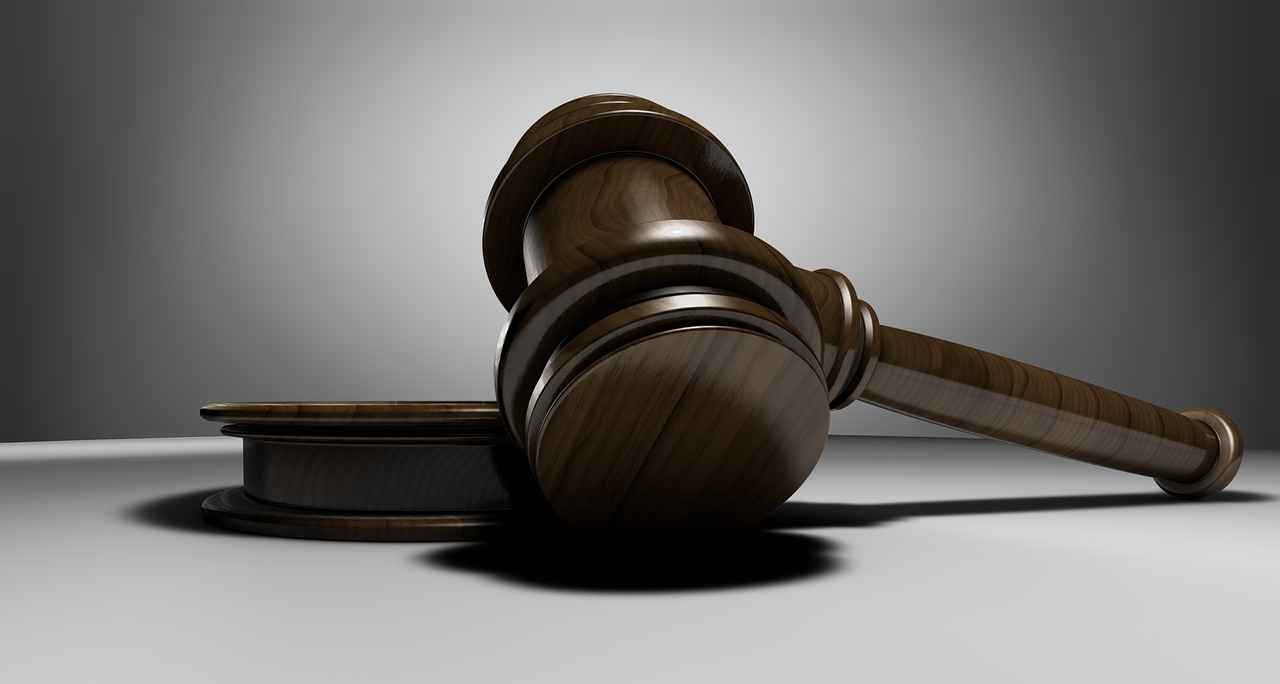This article serves as a thorough guide for individuals seeking to identify qualified legal professionals across various case types in Houston, Texas. Understanding the nuances of different legal issues can empower you to make informed decisions during your legal journey.
Understanding the Types of Legal Cases
In the U.S., legal cases can be categorized into numerous types, each requiring specialized knowledge. Familiarizing yourself with these common cases is crucial for selecting the right attorney.
- Personal Injury: These cases often stem from accidents or negligence, requiring attorneys with a strong track record in settlements and trial experience.
- Medical Malpractice: Involves negligence by healthcare professionals. Attorneys should possess medical knowledge and a history of successful claims.
- Breach of Contract: Requires attorneys skilled in negotiation and litigation, especially in commercial law.
- Property Disputes: These can involve complex laws, so attorneys specializing in real estate law are essential.
- Defamation: Cases of libel and slander necessitate a nuanced understanding of free speech laws.
- Employment Disputes: Covering wrongful termination and discrimination, these cases require attorneys with expertise in employment law.
- Product Liability: Involves injuries from defective products, requiring attorneys knowledgeable in consumer protection laws.
- Wrongful Death: These sensitive cases require attorneys who demonstrate compassion and legal expertise.
- Class Action Lawsuits: For collective lawsuits, look for attorneys experienced in managing large-scale litigation.
- Criminal Defense: Cases ranging from drug offenses to theft require skilled attorneys in criminal law.
- Family Law: Encompasses divorce, child custody, and adoption, necessitating attorneys with a strong negotiation track record.
- Immigration Cases: Due to the complexity of immigration law, specialized attorneys are crucial.
- Bankruptcy: Attorneys should be knowledgeable in financial distress and bankruptcy filings.
- Intellectual Property: Disputes over patents and trademarks require specialized legal knowledge.
- Civil Rights Violations: Protecting individual rights against government infringement requires dedicated legal professionals.
Finding Qualified Lawyers in Houston
When searching for legal representation, especially in a bustling city like Houston, consider the following methods:
- Online Resources: Use legal directories and review sites to find reputable attorneys. Look for those with positive reviews and high ratings.
- Bar Association Memberships: Verify if the attorney is a member of the Texas Bar Association to ensure they are licensed and in good standing.
- Personal Referrals: Recommendations from friends or family can lead you to trusted attorneys.
Red Flags to Avoid
Be cautious when selecting an attorney. Here are some red flags to consider:
- Unrealistic Guarantees: Attorneys who promise specific outcomes may not be trustworthy, as legal cases are unpredictable.
- Poor Communication Skills: If an attorney is unresponsive or unclear, it may indicate a lack of professionalism.
Conclusion
Finding the best lawyer for your legal needs in Houston requires careful consideration of their specialization, experience, and reputation. By utilizing the right resources and watching for red flags, you can secure competent legal representation. Remember, the right attorney can make all the difference in navigating the complexities of the legal system.

Understanding the Types of Legal Cases
When navigating the complexities of the legal system, it is essential to familiarize yourself with the various types of legal cases that may arise. This knowledge is invaluable when it comes to selecting the right attorney who specializes in your specific legal issue. Below, we explore some of the most common legal cases in the United States and provide guidance on how to find qualified legal representation.
- Personal Injury: These cases often stem from accidents caused by negligence, such as car accidents or slip-and-falls. Seek attorneys with a strong history of successful settlements and trial experience in personal injury cases.
- Medical Malpractice: Involves negligence by healthcare professionals. Look for lawyers who have medical expertise and a proven track record in handling malpractice claims.
- Breach of Contract: These cases require attorneys skilled in negotiation and litigation. Choose those with experience in commercial law and a history of resolving contract disputes.
- Property Disputes: Often complex, these disputes can involve real estate law. Select attorneys who specialize in property law and are familiar with local regulations.
- Landlord-Tenant Disputes: Knowledge of housing laws is crucial. Seek attorneys experienced in tenant rights and landlord obligations to effectively navigate these cases.
- Defamation: Involves libel and slander cases. Choose lawyers with a background in media law and a solid understanding of free speech regulations.
- Employment Disputes: These can include issues like wrongful termination and discrimination. Look for attorneys specializing in employment law with a strong record of advocating for employees.
- Product Liability: Cases involving injuries from defective products require attorneys well-versed in consumer protection laws. Seek those with a history of winning such cases.
- Wrongful Death: These claims necessitate sensitivity and legal expertise. Choose attorneys who demonstrate compassion and have successfully handled similar cases.
- Class Action Lawsuits: Involves multiple plaintiffs against a common defendant. Look for attorneys with experience in managing large-scale litigation.
- Criminal Defense: Cases can range from drug offenses to theft. Seek skilled attorneys with a strong background in criminal law and trial experience.
- White Collar Crime: Involves non-violent offenses like fraud. Choose attorneys experienced in financial crimes and federal regulations.
- DUI/DWI: Requires knowledge of state laws and defenses. Look for lawyers who specialize in drunk driving cases and have a proven success record.
- Family Law: Encompasses issues like divorce and child custody. Seek attorneys with experience in family law and a strong track record in negotiations.
- Immigration Cases: These cases are complex and ever-changing. Look for attorneys specializing in immigration law with a successful history of handling various immigration matters.
- Bankruptcy: Requires knowledgeable attorneys who can guide individuals through financial distress. Seek those experienced in Chapter 7 and Chapter 13 filings.
- Intellectual Property Disputes: Involves patent and trademark issues. Look for attorneys with expertise in IP law and a history of successful litigation.
- Civil Rights Violations: Protects individual rights against government infringement. Choose attorneys committed to civil rights and experienced in relevant litigation.
Finding Qualified Lawyers in Major Cities
When searching for legal representation in bustling metropolitan areas like New York City, Los Angeles, or Chicago, consider the following strategies:
- Online Resources: Utilize legal directories and review sites to find reputable attorneys. Pay attention to client reviews and ratings.
- Bar Association Memberships: Ensure the attorney is a member of the state bar association, which confirms they are licensed and in good standing.
- Referrals: Personal recommendations from friends or family can lead you to trustworthy lawyers.
Red Flags to Avoid
Be cautious of the following warning signs when hiring an attorney:
- Unrealistic Guarantees: Avoid lawyers who promise specific outcomes; legal cases are inherently unpredictable.
- Poor Communication: If an attorney is unresponsive or unclear, it may indicate a lack of professionalism.
- Lack of Transparency: Be wary of attorneys who are not forthcoming about their fees, processes, or potential conflicts of interest.
In conclusion, understanding the various types of legal cases and knowing how to find qualified attorneys is essential for anyone facing legal challenges. By leveraging the right resources and being vigilant about potential red flags, you can secure competent legal representation tailored to your specific needs.

Personal Injury Cases
are a significant area of law that deals with accidents and negligence, impacting individuals’ lives in profound ways. These cases typically arise when an individual suffers harm due to another party’s failure to act responsibly. Such incidents can include car accidents, slip and falls, workplace injuries, and medical malpractice. In navigating the complexities of personal injury law, it is essential to find a competent attorney who specializes in this field.
When seeking a lawyer for a personal injury case, consider the following key factors:
- Proven Track Record: Look for attorneys with a strong history of successful settlements and verdicts in personal injury cases. Their past performance can give you confidence in their ability to handle your case effectively.
- Trial Experience: While many cases settle out of court, having a lawyer who is willing and able to take your case to trial can be a significant advantage. This experience can often lead to better settlement offers from insurance companies.
- Client Testimonials: Reading reviews and testimonials from previous clients can provide insight into an attorney’s communication skills, professionalism, and overall effectiveness. Look for consistent positive feedback.
- Specialization: Choose lawyers who specifically focus on personal injury law rather than general practitioners. Specialized knowledge can make a substantial difference in the outcome of your case.
- Initial Consultation: Many personal injury lawyers offer free initial consultations. Use this opportunity to discuss your case, ask questions, and gauge the attorney’s approach and expertise.
In addition to these factors, it is crucial to be aware of potential red flags when hiring a personal injury attorney:
- Unrealistic Promises: Be cautious of lawyers who guarantee specific outcomes or suggest that your case is a “sure win.” Legal matters are inherently unpredictable, and ethical attorneys will not make such promises.
- Lack of Transparency: If an attorney is unwilling to provide clear information about their fees, case strategy, or expected timelines, it may indicate a lack of professionalism.
- Poor Communication: Effective communication is essential in any attorney-client relationship. If a lawyer is unresponsive or difficult to reach, consider it a warning sign.
Finding the right personal injury lawyer can significantly impact your case’s success. In major metropolitan areas such as New York City, Los Angeles, and Chicago, there are numerous resources available to help you identify qualified attorneys:
- Online Legal Directories: Websites like Avvo, FindLaw, and Martindale-Hubbell allow you to search for personal injury attorneys in your area, complete with ratings and client reviews.
- Bar Association Referrals: Local and state bar associations often provide referral services that can connect you with qualified attorneys based on your specific needs.
- Personal Referrals: Asking friends, family, or colleagues for recommendations can lead you to trustworthy lawyers who have successfully handled similar cases.
In conclusion, personal injury cases require careful consideration and the right legal representation. By focusing on proven track records, trial experience, and effective communication, you can find a qualified attorney who will advocate for your rights. Always be vigilant for red flags and utilize available resources to ensure you make an informed decision in your legal journey.
Medical Malpractice
is a critical area of law that addresses the negligence of healthcare professionals, which can lead to serious harm or even death for patients. This type of negligence occurs when a medical professional fails to provide the standard of care that a reasonably competent provider would have delivered under similar circumstances. Examples include surgical errors, misdiagnosis, delayed diagnosis, and improper treatment. Understanding the nuances of medical malpractice is essential for anyone considering legal action.
When seeking legal representation for a medical malpractice case, it is crucial to find an attorney who specializes in this field. Here are some key factors to consider:
- Specialization: Look for attorneys who specifically focus on medical malpractice. They should have a deep understanding of medical terminology, procedures, and the legal standards that apply to healthcare providers.
- Track Record: Review their history of successful malpractice claims. An attorney with a proven track record is more likely to navigate your case effectively and achieve favorable outcomes.
- Medical Knowledge: An attorney with a background in medicine or a solid understanding of medical practices can better assess the merits of your case and communicate effectively with medical experts.
It is also important to evaluate the attorney’s experience in handling cases similar to yours. For instance, if your case involves surgical errors, seek out attorneys who have successfully represented clients in surgical malpractice claims. Their familiarity with the specifics of such cases can significantly influence your case’s outcome.
In addition to experience, verifying credentials is essential. Ensure that the attorney is licensed to practice in your state and is a member of relevant professional organizations, such as the American Association for Justice. These affiliations often indicate a commitment to staying updated on the latest developments in medical malpractice law.
Furthermore, consider the attorney’s communication style. A trustworthy attorney should be responsive to your inquiries and willing to explain complex legal concepts in a way that you can understand. Poor communication can be a red flag, indicating that the attorney may not be fully invested in your case.
Finally, be cautious of attorneys who make unrealistic guarantees about the outcome of your case. Ethical lawyers understand that no outcome can be assured in legal matters, especially in the complex realm of medical malpractice.
In summary, when searching for a qualified attorney to represent you in a medical malpractice case, prioritize specialization, track record, medical knowledge, and communication skills. By taking these steps, you can enhance your chances of finding a competent legal professional who will advocate effectively on your behalf.
Evaluating Experience
When navigating the complex landscape of legal matters, understanding the importance of experience in choosing the right attorney cannot be overstated. Specifically, it is crucial to consider lawyers who have successfully handled cases that are similar to yours. Their expertise in relevant legal areas can significantly influence the outcome of your case.
First and foremost, attorneys with a background in cases akin to yours are likely to have a deeper understanding of the intricacies involved. For instance, if you are dealing with a personal injury claim, a lawyer who has previously secured favorable settlements for similar claims will know the tactics used by insurance companies and how to counter them effectively. This specialized knowledge can be a decisive factor in achieving a favorable resolution.
Moreover, experienced attorneys often have established relationships within the legal community, including judges and other legal professionals. These connections can be beneficial during negotiations or court proceedings, as they may facilitate a more favorable environment for your case. For example, an attorney with a solid reputation among local judges may have more leverage in persuading them regarding the merits of your case.
When assessing an attorney’s experience, consider the following methods:
- Review Case Histories: Look for lawyers who provide detailed case histories or testimonials from previous clients. This information can give you insight into their success rates and areas of focus.
- Ask About Trial Experience: If your case may go to trial, ensure that the attorney has a proven track record in litigation. Some lawyers may excel in settlements but lack the experience needed for courtroom battles.
- Inquire About Continuing Education: The legal field is constantly evolving. Attorneys who engage in ongoing education and training are likely to be more informed about the latest laws and legal strategies.
Additionally, it is essential to verify their credentials. Look for board certifications and memberships in relevant professional organizations, as these can further affirm their expertise. For instance, membership in the American Bar Association or local bar associations can indicate a commitment to maintaining high professional standards.
However, it is equally important to be aware of potential red flags. Avoid lawyers who make unrealistic promises regarding the outcomes of your case, as legal matters can be unpredictable. Trustworthy attorneys will provide a realistic assessment without guaranteeing specific results.
In conclusion, when evaluating experience, focus on attorneys who have a proven track record in handling cases similar to yours. Their specialized knowledge, established relationships, and commitment to ongoing education can significantly enhance your chances of a successful outcome. By taking the time to thoroughly assess potential legal representatives, you can ensure that you are making an informed decision that will serve your best interests.
Checking Credentials
When it comes to selecting a lawyer, especially in the complex field of medical malpractice, it is essential to conduct a thorough check of their credentials. This process is vital to ensuring that you are entrusting your case to a professional with the necessary expertise and qualifications.
Start by verifying their educational background. Look for attorneys who have graduated from reputable law schools and have completed additional training specific to medical malpractice. Many lawyers pursue further education in healthcare law or related fields, which can enhance their understanding of the nuances involved in such cases.
Next, check for board certifications. These certifications indicate that the attorney has met specific criteria and has demonstrated a high level of proficiency in their area of practice. For medical malpractice, certifications from organizations such as the American Board of Professional Liability Attorneys can be a strong indicator of an attorney’s qualifications.
Membership in relevant professional organizations is another critical factor. Attorneys who are members of organizations like the American Bar Association or local bar associations often have access to valuable resources and continuing education opportunities, which can keep them updated on the latest legal developments in their field. This involvement also reflects a commitment to maintaining high professional standards.
Furthermore, consider their experience in handling medical malpractice cases specifically. Look for attorneys who have a proven track record of success in similar cases, as this experience can significantly impact the outcome of your claim. Ask about the number of cases they have handled, their success rate, and any notable settlements or verdicts they have achieved.
Don’t forget to read client reviews and testimonials. Online platforms such as Avvo, Martindale-Hubbell, and Google Reviews can provide insights into other clients’ experiences with the attorney. Pay attention to feedback regarding their communication skills, responsiveness, and overall satisfaction with the legal representation received.
Lastly, be aware of any red flags that may indicate a lack of professionalism or expertise. Avoid attorneys who make unrealistic promises about the outcome of your case or those who are unwilling to provide references or detailed information about their credentials. A reputable lawyer will be transparent about their qualifications and will not shy away from discussing their previous cases.
In conclusion, taking the time to thoroughly check an attorney’s credentials is essential for anyone seeking legal representation in medical malpractice cases. By focusing on their education, certifications, memberships, experience, and client feedback, you can ensure that you are making an informed choice.
Breach of Contract
cases are often complex and require attorneys who are not only skilled in negotiation but also experienced in litigation. When seeking legal representation for a breach of contract issue, it is essential to find an attorney who specializes in commercial law and has a solid track record in handling contract disputes. These cases can arise from various scenarios, including business agreements, employment contracts, and consumer transactions.
To ensure you select the right attorney, consider the following guidelines:
- Experience in Contract Law: Look for attorneys who have extensive experience specifically in contract law. They should be familiar with the nuances of contracts and the legal implications of breaches.
- Successful Track Record: Research their history of handling similar cases. An attorney with a proven success rate in negotiating settlements and winning cases in court can significantly impact the outcome of your situation.
- Negotiation Skills: Since many breach of contract cases are resolved through negotiation rather than litigation, find an attorney who excels in negotiation tactics. Their ability to reach a favorable settlement can save you time and resources.
- Litigation Experience: If your case does go to trial, ensure your attorney has solid litigation experience. They should be comfortable representing you in court and adept at presenting your case effectively.
- Client Reviews and Testimonials: Check online reviews and testimonials from previous clients. Positive feedback can provide insights into the attorney’s effectiveness and client satisfaction.
When evaluating potential attorneys, consider their credentials. Verify their educational background, professional memberships, and any certifications in contract or commercial law. Membership in organizations such as the American Bar Association or local bar associations can be a good indicator of their commitment to ongoing legal education and ethical standards.
Additionally, be wary of red flags during your search:
- Unrealistic Promises: Avoid attorneys who guarantee specific outcomes. Legal cases are inherently unpredictable, and ethical lawyers will not make such promises.
- Poor Communication: If an attorney is unresponsive or fails to explain legal concepts clearly, this could signal future communication issues.
- High Pressure Tactics: Be cautious of attorneys who rush you into making decisions or push for immediate retention without allowing you to consider your options.
In summary, finding the right attorney for a breach of contract case involves a thorough evaluation of their experience, negotiation and litigation skills, and a careful check of their credentials and client feedback. By following these guidelines, you can increase your chances of securing competent legal representation that aligns with your specific needs.

Property Disputes
Property disputes can be particularly intricate, often involving a myriad of laws and regulations that vary by state and locality. These disputes may arise from disagreements over property boundaries, zoning laws, lease agreements, or ownership claims. Given the complexities involved, it is crucial to select attorneys who specialize in real estate law and possess a comprehensive understanding of local regulations.
When searching for a qualified attorney for property disputes, consider the following guidelines:
- Specialization in Real Estate Law: Look for attorneys who have dedicated their practice to real estate law. Their expertise will be invaluable in navigating the specific legal frameworks that govern property disputes.
- Local Knowledge: An attorney familiar with the local laws and regulations can provide insights that may not be apparent to those practicing in broader jurisdictions. This local knowledge can be a significant advantage in resolving disputes efficiently.
- Track Record: Investigate the attorney’s history with property disputes. A lawyer with a successful track record in similar cases will likely be more effective in representing your interests.
- Client Reviews and Testimonials: Online reviews can offer a glimpse into the attorney’s reputation and client satisfaction. Look for testimonials that specifically mention property disputes.
In addition to these factors, it is essential to evaluate the attorney’s communication skills and availability. Property disputes can often require timely decisions and responses, so an attorney who is accessible and responsive to your needs is critical.
When considering the potential for litigation, it’s also wise to seek attorneys who are experienced in mediation and negotiation. Many property disputes can be resolved outside of court, and having an attorney skilled in these areas can save both time and money.
Furthermore, be aware of red flags when hiring a real estate attorney. Avoid attorneys who promise guaranteed outcomes, as no legal case can be assured of success. Also, be cautious of those who lack transparency in their fees or communication. Clear, open dialogue is essential for a successful attorney-client relationship.
In conclusion, addressing property disputes requires a careful selection of legal representation. By focusing on specialization, local expertise, and proven success, individuals can navigate these complex issues more effectively. Always remember to conduct thorough research and trust your instincts when choosing an attorney to represent your interests in property disputes.
Landlord-Tenant Disputes
are a common issue faced by many individuals across the United States, particularly in bustling metropolitan areas like New York City, Los Angeles, and Houston. These disputes can arise from various issues, including rent increases, eviction notices, property maintenance, and security deposits. Understanding the intricacies of housing laws is essential for both landlords and tenants to navigate these conflicts effectively.
When dealing with , it is crucial to seek legal representation from attorneys who specialize in housing law. These professionals possess the knowledge and experience necessary to advocate for your rights and obligations under the law. Here are some practical steps to help you find the most qualified attorneys for landlord-tenant cases:
- Research Local Attorneys: Start by researching attorneys in your area who specialize in landlord-tenant law. Utilize online legal directories and review platforms to find reputable professionals.
- Check Credentials: Look for attorneys who have relevant experience and credentials, such as membership in the American Bar Association or local bar associations.
- Experience Matters: Seek attorneys who have successfully handled cases similar to yours. Their experience can significantly impact the outcome of your case.
- Consult Reviews: Read client reviews and testimonials to gauge the attorney’s effectiveness and communication skills. Positive feedback can indicate a reliable lawyer.
- Initial Consultations: Take advantage of initial consultations to discuss your case. This allows you to assess the attorney’s approach and determine if they are a good fit for your needs.
Additionally, understanding the specific laws governing landlord-tenant relationships in your state is vital. Each state has its own set of regulations that dictate landlord obligations and tenant rights. For instance, in Texas, the Texas Property Code outlines the responsibilities of landlords regarding property maintenance and tenant safety. Familiarizing yourself with these laws can empower you in discussions with your attorney and during negotiations.
Another important aspect to consider is the cost of legal representation. Many attorneys offer flexible payment options, including flat fees, hourly rates, or contingency fees, depending on the nature of the case. Be sure to discuss fees upfront to avoid any surprises later on.
As you navigate your landlord-tenant dispute, be aware of potential red flags when selecting an attorney:
- Unrealistic Promises: Be cautious of attorneys who guarantee specific outcomes. Legal cases are unpredictable, and ethical lawyers will not make such promises.
- Poor Communication: Effective communication is essential for a successful attorney-client relationship. If an attorney is unresponsive or unclear, it may indicate a lack of professionalism.
- Lack of Transparency: Avoid attorneys who are not forthcoming about their fees, strategies, or potential risks involved in your case.
In conclusion, landlord-tenant disputes can be challenging, but with the right legal representation, you can navigate these issues effectively. By conducting thorough research, checking credentials, and being vigilant about red flags, you can find a qualified attorney who will advocate for your rights and help you achieve a favorable resolution.
Defamation Cases
encompass both libel and slander, and understanding the intricacies of these legal matters is essential for anyone considering pursuing a claim. Defamation involves making false statements about an individual that can harm their reputation. In today’s digital age, where information spreads rapidly, the implications of defamation can be profound, affecting personal and professional lives. Therefore, it is crucial to have a nuanced understanding of free speech laws when navigating these cases.
When seeking legal representation for a defamation case, it is vital to choose lawyers who possess a strong background in media law and a proven track record in handling defamation claims. Here are some practical steps to ensure you find the right attorney for your needs:
- Research Their Experience: Look for attorneys who have successfully handled defamation cases. Their experience in this specific area of law will provide you with the best chance of a favorable outcome.
- Check Credentials: Verify the attorney’s educational background and any specializations in media law. Membership in professional organizations, such as the American Bar Association, can also indicate a commitment to staying updated on legal developments.
- Review Case Outcomes: Ask potential lawyers about their previous case outcomes, particularly in defamation cases. Successful settlements or verdicts can be a strong indicator of their capability.
- Assess Communication Skills: Effective communication is vital in legal matters. During your initial consultation, pay attention to how well the attorney explains complex legal concepts and their willingness to answer your questions.
- Understand Their Approach: In defamation cases, the burden of proof lies with the plaintiff. Ensure your lawyer has a clear strategy for gathering evidence and building a strong case.
Additionally, be aware of potential red flags when selecting a lawyer for your defamation case:
- Unrealistic Promises: Be cautious of attorneys who guarantee specific outcomes. No lawyer can predict the results of a legal case with certainty.
- Lack of Transparency: If an attorney is unwilling to discuss their fees or case strategy openly, it may indicate a lack of professionalism.
- Poor Reputation: Research online reviews and testimonials. A consistent pattern of negative feedback can be a warning sign.
In summary, navigating defamation cases requires a careful approach to finding the right legal representation. By focusing on attorneys with a solid understanding of free speech laws and a background in media law, you can enhance your chances of achieving a successful outcome. Remember to conduct thorough research, assess credentials, and be vigilant about red flags during your search.

Employment Disputes
represent a significant area of concern in the workplace, encompassing a variety of issues that can arise between employees and employers. These disputes may include wrongful termination, discrimination, harassment, and retaliation. Understanding these aspects is crucial for employees seeking legal recourse and for employers aiming to maintain a fair workplace.
When faced with an employment dispute, it is vital to seek out attorneys who specialize in employment law. These legal professionals possess the expertise necessary to navigate the complexities of workplace regulations and can provide invaluable guidance throughout the legal process. Here are some key considerations to keep in mind when searching for the right attorney:
- Specialization: Look for attorneys who focus specifically on employment law. They should have a deep understanding of the Fair Labor Standards Act, Americans with Disabilities Act, and other relevant legislation.
- Experience: Prioritize attorneys with extensive experience handling cases similar to yours. An attorney with a proven track record in employment disputes will be better equipped to handle the nuances of your case.
- Reputation: Research potential attorneys through online reviews and testimonials. A strong reputation in the legal community can indicate reliability and effectiveness.
- Consultation: Many attorneys offer initial consultations, allowing you to discuss your case and assess their approach. Use this opportunity to evaluate their communication style and willingness to advocate for your needs.
In large metropolitan areas such as New York City, Los Angeles, and Houston, the competition among attorneys can be intense. Therefore, leveraging online resources such as legal directories and bar association websites can help you identify qualified candidates. Additionally, personal referrals from trusted sources can lead you to reputable attorneys.
When evaluating potential attorneys, be mindful of certain red flags that may indicate a lack of professionalism or competence:
- Unrealistic Promises: Be wary of attorneys who guarantee specific outcomes. Legal cases are inherently unpredictable, and ethical lawyers will provide realistic expectations.
- Poor Communication: If an attorney is unresponsive or fails to communicate clearly, this may reflect their commitment to your case. Effective communication is essential for a successful attorney-client relationship.
- High Turnover Rates: Frequent changes in staff or partners at a law firm can indicate instability, which may affect the quality of representation you receive.
In conclusion, navigating employment disputes requires careful consideration and the right legal representation. By focusing on attorneys with specialized experience, a solid reputation, and effective communication skills, you can significantly enhance your chances of a favorable outcome in your case. Remember, the right attorney is not just a legal representative but a partner in your journey toward justice.
Product Liability
cases are critical in the realm of personal injury law, as they address injuries or damages caused by defective products. These cases can stem from a variety of issues, including design flaws, manufacturing defects, or inadequate warnings and instructions. If you have suffered an injury due to a product that failed to meet safety standards, it is essential to seek legal representation from attorneys who specialize in this area.
When searching for a qualified lawyer, consider the following factors:
- Experience in Product Liability: Look for attorneys with a proven track record in handling product liability cases. Their experience can significantly impact the outcome of your case.
- Background in Consumer Protection Laws: Attorneys who understand consumer protection laws will be better equipped to navigate the complexities of product liability claims.
- History of Winning Cases: Research their past successes in similar cases. A history of favorable settlements or verdicts can indicate their effectiveness as a legal representative.
Additionally, it is beneficial to consult with attorneys who have access to expert witnesses, such as engineers or safety specialists, who can lend credibility to your case. These experts can provide essential insights into how the product was defective and how it contributed to your injury.
Another important aspect to consider is the attorney’s communication style. You should feel comfortable discussing your case with them, and they should be willing to explain complex legal concepts in a way that is easy to understand. Effective communication is vital for a successful attorney-client relationship.
When evaluating potential attorneys, be cautious of the following red flags:
- Poor Communication: If an attorney is unresponsive or fails to provide clear answers to your questions, it may indicate a lack of professionalism.
- Unrealistic Promises: Be wary of lawyers who guarantee specific outcomes. Legal cases are unpredictable, and ethical attorneys will not make such assurances.
- Lack of Transparency: A reputable attorney should be open about their fees, potential costs, and the legal process. If they are evasive about these details, consider it a warning sign.
In conclusion, product liability cases require specialized legal expertise. By focusing on attorneys with relevant experience, a solid understanding of consumer protection laws, and a proven history of success, you can significantly enhance your chances of receiving fair compensation for your injuries. Take the time to conduct thorough research and consult multiple lawyers before making your decision.
Wrongful Death
When faced with the tragic loss of a loved one due to someone else’s negligence, pursuing a wrongful death claim can be an emotionally taxing experience. These cases not only require a deep understanding of the law but also a high degree of sensitivity and compassion. It is crucial to engage with attorneys who not only possess the necessary legal expertise but also demonstrate empathy towards your situation.
In the realm of wrongful death claims, the legal landscape can be complex and varies significantly from state to state. Therefore, it is vital to choose attorneys who have a proven track record in handling similar cases. Here are some essential considerations when selecting the right legal representation:
- Experience in Wrongful Death Cases: Look for attorneys who specialize in wrongful death claims. Their experience in this particular area of law will ensure they understand the nuances involved, including the types of damages that can be claimed and the evidence required to support your case.
- Compassionate Approach: The emotional toll of losing a loved one can be overwhelming. Choose attorneys who exhibit a genuine understanding of your grief and who will treat your case with the utmost respect and care.
- Success Rate: Research their history of settlements and verdicts in wrongful death cases. A successful attorney should be able to provide evidence of past victories, which can instill confidence in their ability to handle your claim effectively.
- Clear Communication: It is essential to have an attorney who communicates clearly and regularly. They should be able to explain complex legal concepts in a way that is easy to understand, keeping you informed throughout the process.
- Client Testimonials: Seek out reviews or testimonials from previous clients. This feedback can provide insight into the attorney’s ability to handle cases with sensitivity and professionalism.
When searching for qualified lawyers in metropolitan areas such as New York City, Los Angeles, and Chicago, consider utilizing online platforms such as legal directories and review websites. Websites like Avvo and FindLaw can help you find attorneys with the right qualifications and client feedback.
Additionally, verify their credentials through the local bar association. Membership in reputable organizations, such as the American Association for Justice, can also indicate a commitment to staying updated on legal trends and practices.
However, be wary of red flags that may indicate an attorney is not the right fit for your case:
- Unrealistic Promises: Be cautious of attorneys who guarantee specific outcomes or settlements. Legal cases can be unpredictable, and ethical lawyers will not make such claims.
- Poor Communication: If an attorney is unresponsive or fails to provide clear answers to your questions, consider it a warning sign. Effective communication is essential for a successful attorney-client relationship.
- Pressure Tactics: Avoid attorneys who pressure you into making quick decisions. A trustworthy lawyer will respect your need to take the time to consider your options.
In conclusion, pursuing a wrongful death claim requires not only legal expertise but also a compassionate approach. By focusing on the attorney’s experience, communication style, and client feedback, you can find a legal professional who will advocate for your rights while being sensitive to your emotional needs. Remember, the right attorney can make a significant difference in the outcome of your case and help you navigate this challenging time with dignity and respect.

Class Action Lawsuits
serve as a powerful legal tool that enables a group of individuals—often referred to as plaintiffs—to collectively sue a defendant for similar grievances. This legal mechanism is particularly beneficial when individual claims may be too small to pursue independently, but when combined, they can lead to significant financial impact for the defendant. Understanding the intricacies of class action lawsuits is essential for anyone considering this route, as it involves complex legal procedures and substantial resources.
When seeking an attorney for a class action lawsuit, it is crucial to look for professionals with extensive experience in managing large-scale litigation. This includes not only a deep understanding of the legal framework surrounding class actions but also the ability to navigate the challenges that come with representing numerous plaintiffs. Here are some key points to consider:
- Specialization: Choose attorneys who specialize in class action lawsuits or have a proven track record in similar cases. Their expertise can greatly influence the outcome of the case.
- Reputation: Research the attorney’s reputation within the legal community. Look for those who have successfully led class actions to favorable settlements or verdicts.
- Resources: Class action cases often require significant resources, including expert witnesses and extensive research. Ensure the attorney has access to these resources.
- Client Testimonials: Seek out reviews or testimonials from previous clients. Positive feedback can be an indicator of the attorney’s effectiveness and dedication.
- Initial Consultation: Take advantage of free initial consultations to gauge the attorney’s understanding of your case and their approach to handling class actions.
In addition to these factors, it is important to be aware of potential red flags when selecting a lawyer:
- Unrealistic Promises: Be cautious of attorneys who guarantee specific outcomes or settlements. Legal outcomes are inherently unpredictable, and ethical lawyers will avoid making such promises.
- High Fees Without Transparency: Ensure that the attorney is clear about their fee structure. Class action lawsuits can involve complex billing arrangements, so understanding costs upfront is essential.
- Poor Communication: Effective communication is vital in any legal matter. If an attorney is unresponsive or fails to provide clear information during initial discussions, consider this a warning sign.
Class action lawsuits can cover a wide range of issues, including consumer fraud, environmental disasters, and workplace discrimination. As such, it’s important to identify attorneys who not only understand the legal nuances but also have a passion for advocating for the rights of the collective group. In major metropolitan areas like New York City, Los Angeles, and Chicago, where class action lawsuits are more common, finding the right attorney can significantly impact the success of your case.
In conclusion, represent a critical avenue for individuals seeking justice against larger entities. By focusing on experienced attorneys with a solid track record in class action litigation, you can enhance your chances of achieving a successful outcome. Remember to conduct thorough research, utilize available resources, and remain vigilant for red flags during your search for legal representation.

Criminal Defense Cases
encompass a wide range of legal issues, including drug offenses, theft, and more serious charges like murder and assault. Navigating the complexities of criminal law requires the expertise of skilled attorneys who specialize in this field. When facing criminal charges, it is imperative to seek legal representation from professionals with a strong background in criminal law and substantial trial experience.
One of the first steps in finding the right attorney is to look for those who have a proven track record in handling cases similar to yours. This means researching attorneys who have successfully defended clients against drug offenses or theft charges. A lawyer with relevant experience will be familiar with the nuances of the law and the local court system, which can significantly influence the outcome of your case.
In addition to experience, it is crucial to evaluate an attorney’s credentials. Look for lawyers who are members of reputable organizations, such as the National Association of Criminal Defense Lawyers (NACDL) or state bar associations. These memberships often indicate a commitment to staying current with legal developments and best practices in criminal defense.
When interviewing potential attorneys, consider asking about their trial experience. While many cases are settled out of court, having a lawyer who is prepared to take your case to trial can be a significant advantage. Inquire about their success rate in court and whether they have handled cases similar to yours.
Another important factor is communication. A good attorney should be able to explain complex legal concepts in a way that you can understand. During your initial consultation, pay attention to how well they listen to your concerns and how clearly they communicate their strategies. If you feel rushed or dismissed, it may be a red flag.
Additionally, be wary of attorneys who make unrealistic promises. Legal outcomes can be unpredictable, and any lawyer who guarantees a specific result may not be acting ethically. Trustworthy attorneys will provide a realistic assessment of your case and outline potential outcomes based on their experience.
In metropolitan areas like Houston, New York City, and Los Angeles, there are numerous resources available to help you find qualified criminal defense attorneys. Online platforms such as Avvo, FindLaw, and Martindale-Hubbell offer directories of lawyers along with client reviews and ratings. These can be invaluable in assessing an attorney’s reputation and effectiveness.
Furthermore, personal referrals can also be a great way to find trustworthy legal representation. Ask friends, family, or colleagues if they have had positive experiences with criminal defense attorneys. Personal recommendations often provide insights that online reviews may not capture.
In conclusion, finding the right attorney for your criminal defense case is a critical step in ensuring a fair legal process. Look for lawyers with relevant experience, strong credentials, and excellent communication skills. By utilizing available resources and being cautious of red flags, you can secure competent legal representation that is crucial for navigating the complexities of criminal law.
White Collar Crime
encompasses a range of non-violent offenses typically committed in commercial settings. These crimes often involve deceit and are primarily motivated by financial gain. Common examples include fraud, embezzlement, and money laundering. Given the complexity of these cases, it is crucial to select an attorney who specializes in financial crimes and possesses a thorough understanding of federal regulations and statutes.
When searching for legal representation in white collar crime cases, consider the following steps:
- Research Specialization: Look for attorneys who focus specifically on white collar crime. Their specialized knowledge will be invaluable in navigating the intricacies of your case.
- Experience with Federal Cases: Since many white collar crimes are prosecuted at the federal level, choose attorneys with a history of handling cases in federal court. Their familiarity with federal procedures can significantly impact the outcome.
- Track Record: Investigate the attorney’s past successes in similar cases. A lawyer with a proven track record in white collar crime can provide insights into their capabilities and effectiveness.
- Client Reviews: Utilize online platforms such as Avvo or Lawyers.com to read reviews from former clients. Positive testimonials can indicate a trustworthy and skilled attorney.
- Consult Professional Associations: Verify if the attorney is a member of professional organizations, such as the American Bar Association or local bar associations. Membership often reflects a commitment to ethical standards and ongoing education.
Moreover, during your initial consultation, pay attention to the attorney’s communication style and willingness to answer your questions. A good attorney should be able to explain complex legal concepts in a way that you can understand. If they seem evasive or unresponsive, consider this a red flag.
It’s also essential to discuss fees upfront. White collar crime cases can be lengthy and complex, leading to substantial legal fees. Understanding the attorney’s billing structure—whether they charge hourly rates, flat fees, or contingency fees—will help you avoid unexpected costs later.
In major metropolitan areas like New York City, Los Angeles, and Chicago, the competition among legal professionals can be fierce. Therefore, utilizing local bar association directories and legal referral services can help you find qualified attorneys in your area. Additionally, personal referrals from trusted friends or colleagues can lead you to reputable lawyers.
In conclusion, navigating a white collar crime case requires not only a skilled attorney but also one who understands the complexities of financial law. By taking the time to research, consult, and evaluate potential lawyers, you can ensure that you have the best possible representation for your legal needs.
DUI/DWI Cases
are serious legal matters that can have significant consequences on an individual’s life, including hefty fines, license suspension, and even jail time. It is crucial to have an attorney who is not only knowledgeable about the nuances of state laws but also experienced in handling drunk driving cases. When searching for the right legal representation, consider the following aspects:
- Specialization: Look for lawyers who specialize specifically in . These attorneys will have a deep understanding of the legal nuances and defenses that can be employed in such cases.
- Proven Track Record: Seek attorneys with a history of successful outcomes in similar cases. This includes a demonstrated ability to negotiate plea deals or achieve favorable verdicts in court.
- Familiarity with Local Laws: Each state has its own set of laws regarding DUI/DWI offenses. An attorney well-versed in local regulations will be better equipped to navigate the complexities of your case.
- Client Reviews: Utilize online resources to read reviews and testimonials from previous clients. High ratings and positive feedback can be a good indicator of an attorney’s competence and reliability.
- Initial Consultation: Many attorneys offer free initial consultations. Use this opportunity to assess their approach to your case and ask questions about their experience and strategies.
When evaluating potential attorneys, be aware of certain red flags that may indicate a less-than-reputable lawyer:
- Unrealistic Promises: Be cautious of any attorney who guarantees a specific outcome. Legal cases, especially DUI/DWI, can be unpredictable, and ethical lawyers will provide realistic expectations.
- Poor Communication: If an attorney is unresponsive or fails to communicate clearly during the initial consultation, it may be a sign of future communication issues.
- High Pressure Tactics: Avoid attorneys who pressure you into making immediate decisions or signing contracts without giving you adequate time to think.
In conclusion, when dealing with a DUI/DWI case, it is essential to choose an attorney who is experienced, specialized, and has a strong track record. By being diligent in your search and considering the factors mentioned above, you can find a qualified lawyer who will effectively advocate for your rights and navigate the complexities of your case.

Family Law Cases
Family law is a vital area of legal practice that addresses a range of personal and sensitive issues. These matters often involve emotional and financial stakes, making it essential to find qualified legal representation. Common family law cases include divorce, child custody, child support, spousal support (alimony), adoption, and guardianship. Each of these areas requires specific expertise, and understanding what to look for in an attorney can significantly impact the outcome of your case.
When seeking an attorney for family law matters, consider the following:
- Experience in Family Law: Look for attorneys who specialize in family law and have significant experience handling cases similar to yours. An attorney with a strong background in family law will be familiar with the nuances of local laws and procedures.
- Track Record: Investigate their history of successful outcomes in cases like yours. This can include settlements, favorable court decisions, or successful negotiations.
- Communication Skills: Effective communication is crucial in family law cases. Choose an attorney who listens to your concerns, explains complex legal concepts clearly, and keeps you informed throughout the process.
- Negotiation Skills: Many family law cases, especially divorce and custody disputes, are resolved through negotiation. A lawyer with strong negotiation skills can help you reach a fair settlement without the need for a lengthy court battle.
- Compassion and Understanding: Family law issues can be emotionally charged. It’s important to select an attorney who demonstrates empathy and understands the personal challenges you are facing.
Additionally, here are some specific considerations for different family law cases:
- Divorce: When seeking a divorce attorney, look for those who have experience in both contested and uncontested divorces, as well as knowledge of property division laws.
- Child Custody: Choose an attorney who understands the factors the court considers when determining custody arrangements, including the best interests of the child.
- Child Support and Alimony: Seek lawyers who can effectively advocate for your financial rights and understand the guidelines for calculating support obligations.
- Adoption: Adoption cases require attorneys familiar with the legal processes involved in both domestic and international adoptions.
- Guardianship: If you are seeking guardianship, look for attorneys who understand the complexities of guardianship laws and can navigate the legal requirements effectively.
To find qualified family law attorneys, consider utilizing the following resources:
- Online Legal Directories: Websites like Avvo, FindLaw, and Justia provide listings of attorneys by specialty and location, along with client reviews and ratings.
- State Bar Association: Check the state bar association’s website for a list of licensed attorneys in your area, along with any disciplinary records.
- Referrals: Ask friends, family, or colleagues for recommendations. Personal referrals can often lead you to trustworthy attorneys.
While searching for an attorney, be aware of potential red flags:
- Unrealistic Promises: Be cautious of attorneys who guarantee specific outcomes. Legal matters are inherently unpredictable, and ethical lawyers will not make such promises.
- Poor Communication: If an attorney is unresponsive or fails to communicate clearly, it may indicate a lack of professionalism.
- High Pressure Tactics: Avoid attorneys who pressure you to make quick decisions or sign agreements without fully understanding the implications.
In conclusion, navigating family law cases requires careful consideration and the right legal representation. By focusing on an attorney’s experience, communication skills, and track record, you can find a qualified professional who will advocate for your interests. Remember to utilize online resources and personal referrals while remaining vigilant about red flags. With the right legal support, you can achieve a favorable resolution to your family law issues.
Child Support and Alimony
When navigating the complexities of child support and alimony cases, it is essential to understand the financial implications and legal intricacies involved. These cases can significantly impact your financial future and the well-being of your children, making it crucial to select an attorney who is not only knowledgeable but also compassionate and dedicated to advocating for your interests.
In child support cases, the court determines the amount of financial support one parent must provide to the other for the upbringing of their children. This amount is influenced by various factors, including each parent’s income, the child’s needs, and the standard of living the child would have enjoyed if the marriage had not ended. Thus, it is vital to have an attorney who can effectively present your financial situation and argue for an equitable support arrangement.
When it comes to alimony, or spousal support, the court assesses the financial needs and circumstances of both parties. Alimony may be temporary or permanent, depending on the length of the marriage and the financial disparities between the spouses. An experienced attorney can help you navigate these discussions, ensuring that your rights are protected and that any support awarded is fair and just.
Here are some practical steps to find the most qualified attorneys for child support and alimony cases:
- Research Local Family Law Specialists: Look for attorneys who specialize in family law, particularly those with a focus on child support and alimony. Websites like Avvo and FindLaw can help identify qualified lawyers in your area.
- Check Reviews and Testimonials: Reading client reviews can provide insight into an attorney’s effectiveness and communication style. Look for patterns in feedback regarding their ability to handle financial matters in family law cases.
- Evaluate Experience: Seek attorneys with a proven track record in family law cases similar to yours. An attorney with experience in negotiating child support and alimony agreements will be better equipped to advocate on your behalf.
- Verify Credentials: Ensure the attorney is licensed to practice in your state and has relevant certifications. Membership in professional organizations, such as the American Academy of Matrimonial Lawyers, can also indicate a commitment to excellence in family law.
- Schedule Consultations: Many attorneys offer free initial consultations. Use this opportunity to discuss your case, ask about their experience with financial issues in family law, and gauge their communication style.
While searching for an attorney, be mindful of potential red flags:
- Unrealistic Promises: Be wary of attorneys who guarantee specific outcomes, as family law cases can be unpredictable and depend on many factors.
- Poor Communication: If an attorney is unresponsive or fails to explain legal concepts clearly, it may indicate a lack of professionalism.
- High Fees Without Transparency: Ensure that the attorney provides a clear fee structure and is upfront about any additional costs that may arise during your case.
In conclusion, navigating child support and alimony cases requires not only an understanding of the financial implications but also the ability to find a qualified attorney who can advocate for your rights. By conducting thorough research, verifying credentials, and being vigilant about red flags, you can secure legal representation that will support you through this challenging time.
Adoption and Guardianship
cases are among the most sensitive and emotionally charged legal matters. When navigating these complex processes, it is crucial to find an attorney who is not only knowledgeable about family law but also has a deep understanding of child welfare issues. The right legal representation can make a significant difference in ensuring the best outcomes for children and families involved.
When searching for an attorney specializing in adoption and guardianship, consider the following factors:
- Experience in Family Law: Look for attorneys who have a proven track record in family law cases, particularly those involving adoption and guardianship. Their experience will equip them with the necessary skills to handle the nuances of these cases.
- Knowledge of Child Welfare Laws: Attorneys should have a thorough understanding of state and federal laws regarding child welfare. This expertise is essential for navigating the legal landscape surrounding adoption and guardianship.
- Compassion and Sensitivity: Given the emotional nature of adoption and guardianship cases, it is vital to choose an attorney who demonstrates compassion and sensitivity. They should understand the emotional toll these processes can take on families and children.
- Local Expertise: Laws can vary significantly by state. Ensure the attorney is well-versed in the specific laws and regulations of your state, as this will impact the adoption or guardianship process.
To find qualified attorneys in major metropolitan areas like Houston, New York City, Los Angeles, and Chicago, consider utilizing the following resources:
- Online Legal Directories: Websites like Avvo and FindLaw provide extensive listings of attorneys by specialty and location. You can read reviews and ratings to gauge their reputation.
- State Bar Associations: Check the state bar association’s website for a list of licensed attorneys. This ensures they are in good standing and have the necessary qualifications to practice law in your state.
- Personal Referrals: Ask friends, family, or colleagues for recommendations. Personal experiences often provide valuable insights into an attorney’s capabilities and approach.
When evaluating potential attorneys, be sure to check their credentials. Look for board certifications in family law and memberships in relevant professional organizations, such as the American Academy of Adoption Attorneys. These credentials indicate a commitment to ongoing education and adherence to professional standards.
As you interview potential attorneys, pay attention to their communication skills. A good attorney should be responsive, clear in their explanations, and willing to address your concerns. If you encounter any red flags, such as lack of transparency or unrealistic promises, trust your instincts and continue your search.
In conclusion, navigating adoption and guardianship cases requires careful consideration and the right legal support. By seeking attorneys with the appropriate experience, knowledge, and compassion, you can ensure a smoother process for you and your family. Remember to utilize various resources and trust your judgment when selecting the best legal representation for your needs.

Immigration Cases
Immigration law in the United States is a highly intricate field that is continually evolving due to changes in legislation, policy shifts, and international relations. Navigating this complexity requires the expertise of attorneys who specialize in immigration matters. When seeking legal representation for immigration cases, it is essential to find lawyers who not only have a deep understanding of immigration law but also a proven track record of success in handling various types of immigration issues.
One of the first steps in finding a qualified immigration attorney is to look for specialists in the field. Immigration law encompasses a wide range of issues, including visa applications, green card petitions, asylum claims, and deportation defense. Therefore, it is crucial to seek out attorneys who have extensive experience in the specific area relevant to your case.
To identify qualified immigration attorneys, consider the following methods:
- Referrals: Ask friends, family, or colleagues if they can recommend an immigration lawyer they have worked with in the past. Personal referrals can often lead to trustworthy professionals.
- Online Directories: Utilize legal directories such as Avvo or FindLaw, which provide comprehensive listings of attorneys by specialty and location. Look for those with high ratings and positive reviews.
- Bar Association Listings: Check the state bar association’s website for a list of licensed immigration attorneys. Membership in professional organizations, such as the American Immigration Lawyers Association (AILA), can also indicate a lawyer’s commitment to staying updated on immigration law.
When evaluating potential attorneys, pay attention to their credentials and experience. Look for the following:
- Specialization: Ensure the attorney specializes in immigration law and has handled cases similar to yours.
- Success Rate: Inquire about their success rate in similar cases. Successful outcomes can indicate their effectiveness in navigating the immigration system.
- Communication Skills: Effective communication is vital. Ensure the attorney can explain complex legal concepts in a way that you can understand.
Additionally, be cautious of potential red flags during your search:
- Unrealistic Promises: Be wary of attorneys who guarantee specific outcomes. Immigration cases can be unpredictable, and ethical lawyers will not make such assurances.
- Lack of Transparency: If an attorney is unwilling to provide clear information about their fees or the legal process, consider it a warning sign.
- Poor Communication: If the attorney is unresponsive or difficult to reach during the initial consultation, it may indicate how they will handle your case.
Once you have narrowed down your options, schedule consultations with a few attorneys. Many immigration lawyers offer free initial consultations, which can provide valuable insights into their approach and expertise. Prepare a list of questions to ask during these meetings, such as:
- What is your experience with cases like mine?
- What are the potential challenges I might face in my case?
- How do you stay updated on changes in immigration law?
In conclusion, finding the right immigration attorney requires careful consideration and research. By utilizing referrals, online resources, and bar association listings, you can identify qualified attorneys who specialize in immigration law. Pay close attention to their credentials, communication skills, and any potential red flags. With the right legal representation, you can navigate the complexities of immigration law more effectively and increase your chances of a successful outcome.

Bankruptcy Cases
present unique challenges for individuals and businesses facing financial distress. Navigating through bankruptcy can be a daunting process, and having a knowledgeable attorney by your side is crucial. When searching for the right legal representation, it’s essential to focus on attorneys who specialize in bankruptcy law, particularly those experienced in Chapter 7 and Chapter 13 filings.
Understanding the differences between these two chapters is vital. Chapter 7 bankruptcy, often referred to as liquidation bankruptcy, involves the sale of non-exempt assets to pay off creditors. This process can lead to the discharge of many unsecured debts, providing a fresh financial start. On the other hand, Chapter 13 bankruptcy allows individuals to reorganize their debts and create a repayment plan over three to five years while retaining their assets. Attorneys who are well-versed in these chapters can guide clients through the complexities of the law, ensuring that they make informed decisions.
When seeking a bankruptcy attorney, consider the following criteria:
- Experience: Look for attorneys who have a proven track record in handling bankruptcy cases similar to yours. Their experience can significantly impact the outcome of your case.
- Reputation: Research online reviews and testimonials from previous clients. A reputable attorney will have positive feedback and a solid standing in the legal community.
- Credentials: Verify the attorney’s qualifications, including their education, bar admissions, and any relevant certifications in bankruptcy law.
- Consultation: Many attorneys offer free initial consultations. Use this opportunity to gauge their expertise and determine if they are a good fit for your needs.
Additionally, it’s important to be aware of potential red flags when hiring a bankruptcy attorney:
- Unrealistic Promises: Avoid attorneys who guarantee specific outcomes or promise to eliminate all debts. Bankruptcy outcomes can vary based on individual circumstances and legal complexities.
- Lack of Transparency: If an attorney is unclear about their fees or the bankruptcy process, it may indicate a lack of professionalism. Ensure you understand all costs involved before proceeding.
- Poor Communication: Effective communication is vital. If an attorney is unresponsive or fails to answer your questions satisfactorily, consider looking for someone else.
In major metropolitan areas such as New York City, Los Angeles, and Chicago, the demand for bankruptcy attorneys is high. Utilize online resources, such as legal directories and review platforms, to find qualified lawyers in your area. Websites like Avvo, FindLaw, and the National Association of Consumer Bankruptcy Attorneys (NACBA) can provide valuable information and help you compare different attorneys.
Moreover, local bar associations often maintain referral services that can connect you with experienced bankruptcy lawyers. These associations ensure that referred attorneys are in good standing and have the necessary qualifications to handle bankruptcy cases.
In conclusion, navigating bankruptcy is a complex process that requires the guidance of an experienced attorney. By focusing on qualifications, reputation, and communication skills, you can find a trustworthy legal professional to assist you through this challenging time. Remember to conduct thorough research and don’t hesitate to seek second opinions if needed. The right attorney can make a significant difference in your financial recovery journey.

Intellectual Property Disputes
are increasingly prevalent in today’s innovation-driven economy. These disputes often involve patents, trademarks, and copyrights, and they require specialized knowledge to navigate effectively. When faced with such issues, it is crucial to seek attorneys who possess a deep understanding of intellectual property law and a proven track record of successful litigation.
The first step in finding the right attorney for intellectual property disputes is to identify those who specialize in this area of law. Many lawyers may claim to handle various legal matters, but intellectual property is a complex field that demands specific expertise. Look for attorneys who have dedicated their careers to IP law and have substantial experience in handling cases similar to yours.
When evaluating potential lawyers, consider their educational background and professional experience. Attorneys with advanced degrees in fields related to technology, science, or engineering may provide invaluable insights into patent disputes, especially those involving intricate technologies. Furthermore, check their history of successful litigation in intellectual property cases. A strong portfolio of past victories can be a good indicator of their capability.
- Research Online: Utilize legal directories and websites that specialize in attorney reviews to gather information about potential candidates. Websites like Avvo and FindLaw provide ratings and reviews from clients and peers.
- Bar Association Membership: Verify that the attorney is a member of relevant bar associations, such as the American Bar Association or local IP law sections. This ensures they are recognized professionals in their field.
- Consultation: Schedule initial consultations with multiple attorneys. This allows you to gauge their communication style, approach to your case, and overall compatibility.
It is also important to be aware of red flags when selecting an attorney for intellectual property disputes. Avoid lawyers who make unrealistic promises or guarantees regarding the outcome of your case. Legal matters, especially in intellectual property, can be unpredictable, and ethical attorneys will not assure you of specific results.
Another warning sign is a lack of transparency in their fee structure. Be cautious of attorneys who are vague about their billing practices or who do not provide a clear estimate of costs associated with your case. A reputable attorney will be upfront about their fees and any potential additional costs.
In addition to these considerations, ensure that the attorney you choose has a solid understanding of both state and federal laws governing intellectual property. This knowledge is essential, as IP law can vary significantly depending on jurisdiction. Furthermore, they should be familiar with current trends and changes in legislation, which can impact your case.
Lastly, consider the attorney’s network and resources. A well-connected attorney may have access to experts and resources that can strengthen your case, such as patent examiners or industry specialists. This network can be a significant advantage in complex intellectual property disputes.
In conclusion, navigating intellectual property disputes requires careful consideration and a strategic approach. By seeking attorneys with specialized knowledge in IP law, a proven track record, and a transparent communication style, you can enhance your chances of a favorable outcome. Take the time to research and assess potential candidates thoroughly, and do not hesitate to ask questions during consultations. The right legal representation can make all the difference in protecting your intellectual property rights.

Civil Rights Violations
are a critical area of law that focuses on protecting individuals’ rights against infringement by government entities and other organizations. These violations can manifest in various forms, including discrimination based on race, gender, disability, or sexual orientation, as well as unlawful arrests and police misconduct. It is essential to understand that civil rights cases are not just about individual grievances; they also serve to uphold the principles of justice and equality in society.
When seeking legal representation for civil rights violations, it is imperative to choose attorneys who possess a strong commitment to civil rights and a proven track record in relevant litigation. Here are some practical steps to help you find the most qualified legal professionals for civil rights cases:
- Research Specialization: Look for attorneys who specialize in civil rights law. This specialization is crucial as civil rights cases often require a nuanced understanding of both federal and state laws.
- Evaluate Experience: Consider attorneys who have successfully handled cases similar to yours. Their experience can significantly influence the outcome of your case.
- Check Credentials: Verify the attorney’s credentials, including their education, bar admissions, and memberships in relevant professional organizations, such as the American Civil Liberties Union (ACLU) or the National Lawyers Guild.
- Read Reviews: Utilize online platforms to read reviews and testimonials from former clients. Look for lawyers with positive feedback regarding their communication skills and case outcomes.
- Assess Communication: Effective communication is vital. During your initial consultation, pay attention to how well the attorney listens to your concerns and explains the legal process.
In addition to these steps, be vigilant about potential red flags when hiring a civil rights attorney:
- Unrealistic Promises: Be cautious of attorneys who guarantee specific outcomes. Legal cases are inherently unpredictable, and ethical lawyers will not make such promises.
- Lack of Transparency: If an attorney is unwilling to provide clear information about their fees, processes, or past case outcomes, consider it a warning sign.
- Poor Communication Skills: If an attorney is unresponsive or unclear in their communication, it may hinder your case and indicate a lack of professionalism.
Finding the right attorney for civil rights violations can be a daunting task, especially in large metropolitan areas like New York City, Los Angeles, or Chicago. Here are some additional tips tailored for these busy legal markets:
- Utilize Legal Directories: Websites like Avvo, FindLaw, and Martindale-Hubbell provide comprehensive listings of attorneys, including their specialties and client reviews.
- Contact Local Bar Associations: Local bar associations often have referral services that can connect you with qualified civil rights attorneys in your area.
- Seek Recommendations: Personal referrals from friends, family, or colleagues can lead you to trustworthy attorneys who have successfully handled civil rights cases.
In conclusion, civil rights violations are serious matters that require skilled legal representation. By following these guidelines and being diligent in your search, you can find an attorney who not only understands the intricacies of civil rights law but also shares your commitment to justice. Remember, the right attorney can make a significant difference in your pursuit of civil rights protection.

Finding Qualified Lawyers in Houston
When navigating the complex legal landscape, especially in a bustling city like Houston, finding the right attorney is crucial. The process can be daunting, but with the right approach, you can identify qualified legal professionals who can effectively represent your interests. Here are some comprehensive strategies to assist you in your search:
- Utilize Online Platforms: The internet is a valuable resource for finding attorneys. Websites such as Avvo, FindLaw, and Lawyers.com offer directories where you can search for lawyers by specialty and location. Look for attorneys with high ratings and positive reviews, as these are indicators of their reputation and client satisfaction.
- Bar Association Directories: The State Bar of Texas provides a directory of licensed attorneys. By checking their membership, you can ensure that the lawyer is in good standing and has the necessary qualifications to practice law in Texas. This is particularly important for verifying their credentials.
- Personal Referrals: Word of mouth can be incredibly effective. Ask friends, family, or colleagues if they can recommend an attorney based on their experiences. Personal referrals often lead to trustworthy and reliable legal representation.
- Consultation Meetings: Once you have a shortlist of potential attorneys, schedule initial consultations. Many lawyers offer free consultations, which allow you to discuss your case and assess their suitability. During these meetings, pay attention to how they communicate and whether they listen to your concerns.
- Evaluate Specialization: Legal issues can vary greatly, so it’s important to find an attorney who specializes in your specific type of case. For example, if you are dealing with a personal injury case, look for lawyers who have a proven track record in that area. Similarly, if your case involves family law, seek out attorneys who focus on divorce and custody matters.
- Check Their Experience: Experience matters in legal representation. Inquire about the attorney’s history with cases similar to yours, including their success rates. An experienced lawyer will be more adept at navigating the complexities of the legal system and developing effective strategies for your case.
- Review Credentials: Verify the attorney’s education, certifications, and any awards or recognitions they may have received. Memberships in professional organizations, such as the American Bar Association, can also indicate a commitment to ongoing education and ethical practice.
- Avoid Red Flags: Be cautious of any attorney who makes unrealistic promises or guarantees about the outcome of your case. Legal proceedings are inherently unpredictable, and ethical lawyers will not make such claims. Additionally, if an attorney is unresponsive or demonstrates poor communication skills during initial interactions, it may be a sign to look elsewhere.
In conclusion, finding a qualified lawyer in Houston requires diligence and careful consideration. By utilizing online resources, verifying credentials, and seeking personal referrals, you can ensure that you choose a legal professional who is well-equipped to handle your case. Remember to trust your instincts and prioritize clear communication throughout the process. With the right attorney by your side, you can navigate your legal challenges with confidence.
Utilizing Online Resources
In today’s digital age, finding a qualified attorney has become more accessible than ever. Utilizing online resources can significantly streamline your search for legal representation, especially in bustling metropolitan areas like New York City, Los Angeles, and Houston. Here are some effective strategies to consider:
- Legal Directories: Websites like Avvo, FindLaw, and Nolo provide comprehensive listings of attorneys. These platforms often include client reviews, ratings, and detailed profiles that outline each attorney’s qualifications and areas of expertise.
- Review Sites: Platforms such as Yelp and Google Maps allow users to leave reviews and ratings for legal professionals. Pay close attention to positive feedback and overall ratings, as they can give you insight into an attorney’s reputation and client satisfaction.
- Social Media: Many attorneys maintain a presence on social media platforms like LinkedIn and Facebook. These profiles can provide additional information about the attorney’s background, community involvement, and client interactions.
- Bar Association Websites: Check the website of the state bar association, such as the Texas Bar, to verify an attorney’s credentials. Membership indicates that the lawyer is licensed and in good standing.
When evaluating potential attorneys, it is crucial to look for specific credentials. Consider the following:
- Specialization: Ensure the attorney specializes in the area of law relevant to your case, whether it be personal injury, family law, or criminal defense.
- Experience: Look for attorneys with a proven track record in handling cases similar to yours. Experience can greatly influence the outcome of your legal matter.
- Education and Certifications: Verify the attorney’s educational background and any additional certifications or honors they may have received, which can indicate their level of expertise.
While online resources can be incredibly beneficial, it is essential to remain vigilant and avoid potential red flags:
- Unrealistic Promises: Be wary of attorneys who guarantee specific results. Legal outcomes can be unpredictable, and ethical attorneys will not make such promises.
- Poor Communication: If an attorney is unresponsive during initial consultations, it may indicate how they will handle your case. Effective communication is vital for a successful attorney-client relationship.
- Lack of Transparency: Avoid attorneys who are vague about their fees or the processes involved in your case. Transparency is crucial for building trust.
In conclusion, utilizing online resources such as legal directories, review sites, and bar association websites can significantly aid your search for a qualified attorney. By focusing on specific credentials and being aware of potential red flags, you can make an informed decision and secure the legal representation you need.
Checking Bar Association Memberships
When seeking legal representation, it is crucial to ensure that your attorney is appropriately qualified and authorized to practice law in your state. One of the most effective ways to verify this is by checking whether the attorney is a member of the Texas Bar Association. Membership in this organization signifies that the attorney has met the necessary educational and ethical standards required to practice law in Texas.
Being a member of the Texas Bar Association not only confirms that the attorney is licensed but also indicates that they are in good standing. This means they have fulfilled all obligations related to their legal practice, including continuing education requirements and adherence to professional conduct rules. It’s important to note that attorneys who are not in good standing may not be able to represent clients effectively or may face disciplinary actions that could impact your case.
To check an attorney’s membership status, you can visit the official Texas Bar Association website, where you will find a searchable database. This database allows you to input the attorney’s name and view their profile, which includes their license status, disciplinary history, and any specialties they may have. This information is invaluable when making a decision about which attorney to hire.
Moreover, membership in other professional organizations can also provide insight into an attorney’s qualifications. For instance, an attorney who is part of the American Bar Association (ABA) or local legal associations may have access to additional resources and networks that can enhance their ability to represent you effectively. These memberships often require attorneys to adhere to high ethical standards and participate in ongoing education, which can be a significant advantage for clients.
In addition to verifying membership, consider the attorney’s experience in handling cases similar to yours. For example, if you are dealing with a personal injury claim, look for an attorney who specializes in personal injury law and has a proven track record of successful settlements or verdicts. This specialization often translates into a deeper understanding of the nuances involved in your specific legal issue.
Another critical factor to consider is the attorney’s communication style and availability. A good attorney should be responsive to your inquiries and keep you informed about the progress of your case. If you find that an attorney is difficult to reach or does not communicate clearly, this could be a red flag. Effective communication is essential for a successful attorney-client relationship.
Finally, trust your instincts when selecting an attorney. If something feels off during your initial consultation, or if the attorney makes unrealistic promises about the outcome of your case, it may be wise to continue your search. Legal matters can be complex, and it is essential to have a qualified attorney who is transparent and honest about the potential challenges you may face.
In summary, verifying an attorney’s membership in the Texas Bar Association is a vital step in ensuring that you select a qualified legal professional. Additionally, consider their experience, communication skills, and overall professionalism. By taking these steps, you can increase your chances of finding a trustworthy attorney who is well-equipped to handle your legal needs.

Red Flags to Avoid
When navigating the complex world of legal representation, it is essential to be vigilant and discerning in your choices. The legal profession, while filled with dedicated and skilled professionals, also has its share of individuals who may not have your best interests at heart. Therefore, it is crucial to be aware of certain warning signs that can indicate an attorney may not be the right fit for you. Here are some when searching for legal counsel:
- Unrealistic Promises: Be wary of attorneys who make grandiose claims about the outcomes of your case. Legal matters are often unpredictable, and a reputable attorney will not guarantee specific results. If an attorney promises a win or a large settlement without fully understanding the details of your case, it may indicate a lack of experience or integrity.
- Lack of Transparency: Transparency is essential in any professional relationship. If an attorney is unwilling to share their fees, the legal process, or the potential challenges of your case, this should raise a red flag. A trustworthy attorney will provide clear and honest information about their services and what you can expect.
- Unprofessional Behavior: Pay attention to how an attorney interacts with you and others. Unprofessionalism can manifest in various ways, such as being consistently late, failing to return calls or emails, or showing a lack of respect. These behaviors may indicate that they will not prioritize your case.
- Poor Communication Skills: Effective communication is vital for a successful attorney-client relationship. If an attorney struggles to explain legal concepts clearly or seems dismissive of your concerns, it might be a sign that they are not the right advocate for you. Look for attorneys who take the time to listen and communicate effectively.
- High Turnover Rate: If you notice that the attorney has a high turnover rate of staff or associates, it could indicate internal issues within the firm. A stable team often reflects a well-managed practice, which is crucial for handling your case effectively.
- Pressure Tactics: Be cautious of attorneys who pressure you into making quick decisions or signing contracts without fully understanding the implications. A reputable attorney will give you the time and space to consider your options.
- Negative Reviews: In today’s digital age, online reviews can provide valuable insights into an attorney’s reputation. If you find multiple negative reviews or complaints about an attorney’s conduct or service, it is wise to proceed with caution.
- Inexperience: While every attorney has to start somewhere, you should be cautious if an attorney lacks experience in handling cases similar to yours. Look for attorneys who have a proven track record in your specific legal area.
- Unclear Fees: Ensure that you have a clear understanding of the attorney’s fee structure before hiring them. If an attorney is vague about their fees or uses complex language to describe them, this could lead to unexpected costs down the line.
In conclusion, finding the right attorney is a critical step in ensuring that your legal matters are handled with care and expertise. By being aware of these red flags and trusting your instincts, you can better navigate the process of selecting a legal professional who will effectively advocate for your interests. Remember, it is always acceptable to seek second opinions if you feel uncertain about your choice. Your legal representation is too important to leave to chance.
Unrealistic Guarantees
When navigating the complex world of legal representation, it is crucial to be aware of the red flags that may indicate an attorney is not acting in your best interest. One of the most significant warning signs is the presence of . In the legal profession, outcomes are inherently unpredictable; even the most experienced lawyers cannot guarantee a specific result in any case.
It is essential to understand that legal cases are influenced by numerous factors, including the unique circumstances of each case, the evidence available, and the interpretations of the law by judges and juries. Ethical lawyers recognize this unpredictability and will refrain from making promises that could mislead clients. Instead, they focus on providing a realistic assessment of the case based on their knowledge and experience.
When consulting with potential attorneys, pay close attention to their language. If a lawyer claims they can win your case without any doubt or offers a specific monetary amount they can secure for you, this should raise a red flag. Instead, look for attorneys who provide a balanced view of the potential outcomes, discussing both the strengths and weaknesses of your case.
Additionally, consider the following guidelines to help you assess an attorney’s credibility:
- Experience and Track Record: Investigate their history with similar cases. A lawyer with a proven track record in your specific legal issue is more likely to provide realistic expectations.
- Client Reviews and Testimonials: Look for feedback from past clients. Positive reviews can indicate a lawyer’s ability to communicate effectively and manage cases ethically.
- Professional Associations: Check if the attorney is a member of reputable legal organizations, such as the American Bar Association or state bar associations, which uphold ethical standards.
- Transparent Communication: A trustworthy lawyer should be open about their strategies and the potential risks involved in your case.
Furthermore, it is wise to seek a second opinion if you encounter an attorney who makes you uncomfortable with their promises. This can help you gain perspective on your case and ensure that you are working with someone who prioritizes your best interests over making unrealistic claims.
In conclusion, while the desire for a favorable outcome is natural, it is vital to approach legal representation with a clear understanding of the inherent uncertainties involved. By staying vigilant and recognizing the signs of unrealistic guarantees, you can better navigate your legal journey and find an attorney who will provide the competent and ethical representation you deserve.
Poor Communication Skills
can severely impact the attorney-client relationship, leading to misunderstandings and dissatisfaction. An effective attorney must be able to convey information clearly and respond promptly to client inquiries. If you find that an attorney is unresponsive or their communication is consistently unclear, it may be a significant red flag. Here are some insights into why communication is crucial and how to identify potential issues:
- Transparency: An attorney should be open about their processes, fees, and the potential outcomes of your case. If they hesitate to provide this information, it could indicate a lack of professionalism.
- Responsiveness: Legal matters often require timely decisions. An attorney who takes too long to respond may hinder your case’s progress. Look for attorneys who prioritize prompt communication.
- Clarity: Legal jargon can be confusing. A good attorney should be able to explain complex legal terms in a way that you can understand. If you find yourself more confused after discussions, it may be time to seek another opinion.
- Listening Skills: Effective communication is a two-way street. An attorney should actively listen to your concerns and questions. If they seem dismissive or uninterested in your input, this could indicate a lack of commitment to your case.
In my three decades of experience, I have seen countless cases where poor communication led to unfavorable outcomes. Clients often felt neglected or misled, resulting in unnecessary stress and complications. Therefore, it is essential to evaluate how an attorney communicates during your initial consultations.
When searching for a qualified attorney, consider asking the following questions:
- How do you prefer to communicate with clients (email, phone, in-person meetings)?
- What is your typical response time for client inquiries?
- Can you explain the legal process involved in my case in simple terms?
- How will you keep me updated on my case’s progress?
In conclusion, effective communication is vital for a successful attorney-client relationship. Always trust your instincts—if an attorney’s communication style does not meet your expectations, do not hesitate to seek out other legal professionals who can provide the clarity and responsiveness you need.
In conclusion, finding the best lawyer for your legal needs in Houston requires careful consideration of their specialization, experience, and reputation. By utilizing the right resources and being vigilant about red flags, you can secure competent legal representation.
How to Find the Best Lawyers & Attorneys in the United States
This article provides a comprehensive guide on identifying qualified legal professionals for various case types across the United States, ensuring you make informed decisions in your legal journey.
Understanding Common Legal Cases
- Personal Injury: Arising from accidents and negligence, seek attorneys with a proven track record in settlements and trial experience.
- Medical Malpractice: Involves negligence by healthcare professionals. Look for lawyers with medical knowledge and a history of successful claims.
- Breach of Contract: Requires attorneys skilled in negotiation and litigation. Choose those experienced in commercial law.
- Property Disputes: Choose attorneys specializing in real estate law who understand local regulations.
- Landlord-Tenant Disputes: Seek lawyers experienced in housing laws to navigate these complex cases effectively.
- Defamation: Involves nuanced understanding of free speech laws. Choose lawyers with a background in media law.
- Employment Disputes: Look for attorneys specializing in employment law, particularly wrongful termination and discrimination cases.
- Product Liability: Seek lawyers with experience in consumer protection laws and a successful history in similar cases.
- Wrongful Death: Choose attorneys who demonstrate compassion and have successfully handled similar claims.
- Class Action Lawsuits: Look for attorneys experienced in managing large-scale litigation.
- Criminal Defense Cases: Seek skilled attorneys for offenses including drug offenses and theft.
- White Collar Crime: Choose lawyers experienced in financial crimes.
- DUI/DWI Cases: Look for attorneys familiar with state laws and defenses.
- Family Law: Seek attorneys with experience in divorce and child custody matters.
- Immigration Cases: Choose lawyers specializing in immigration law.
- Bankruptcy Cases: Look for knowledgeable attorneys who can guide you through financial distress.
- Intellectual Property Disputes: Seek attorneys with expertise in IP law.
- Civil Rights Violations: Choose attorneys committed to protecting individual rights.
Finding Qualified Lawyers in Major Cities
Researching local attorneys is essential, especially in major metropolitan areas like New York City, Los Angeles, Chicago, and Houston. Here are proven methods:
- Utilizing Online Resources: Online legal directories and review sites can help you find reputable attorneys. Look for those with positive reviews and high ratings.
- Checking Bar Association Memberships: Verify if the attorney is a member of the state bar association to ensure they are licensed and in good standing.
- Personal Referrals: Ask friends, family, or colleagues for recommendations based on their experiences.
- Consultation Meetings: Many attorneys offer free consultations. Use this opportunity to gauge their expertise and compatibility.
Red Flags to Avoid
Be cautious of the following:
- Unrealistic Guarantees: Avoid attorneys who promise specific outcomes. Legal cases are unpredictable.
- Poor Communication Skills: If an attorney is unresponsive or unclear, it may indicate a lack of professionalism.
- High Fees Without Transparency: Ensure you understand the fee structure before hiring an attorney.
- Lack of Experience in Your Case Type: Choose an attorney who specializes in your specific legal issue.
Conclusion
Finding the best lawyer for your legal needs requires careful consideration of their specialization, experience, and reputation. By utilizing the right resources and being vigilant about red flags, you can secure competent legal representation across various case types, ensuring your legal journey is as smooth as possible.
Frequently Asked Questions
- How do I choose the right lawyer for my case?
Choosing the right lawyer involves understanding your legal issue and finding an attorney who specializes in that area. Look for experience, positive reviews, and a good track record in handling similar cases.
- What should I look for in a personal injury attorney?
When selecting a personal injury attorney, prioritize their experience with settlements and trial cases. Check their success rate and ensure they have a strong understanding of personal injury law.
- How can I verify an attorney’s credentials?
You can verify an attorney’s credentials by checking their memberships in professional organizations and their standing with the state bar association. This ensures they are licensed and qualified to practice law.
- What are the red flags when hiring a lawyer?
Be wary of attorneys who make unrealistic promises, exhibit poor communication skills, or lack transparency about fees and processes. Trust your instincts if something feels off.
- How can online resources help in finding a lawyer?
Online resources like legal directories and review sites can provide valuable information about attorneys, including client reviews and ratings, helping you make an informed decision.














